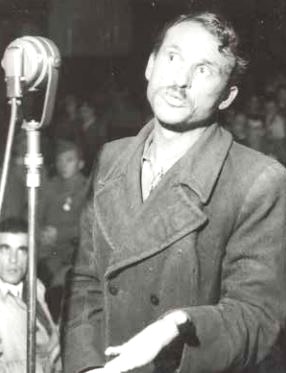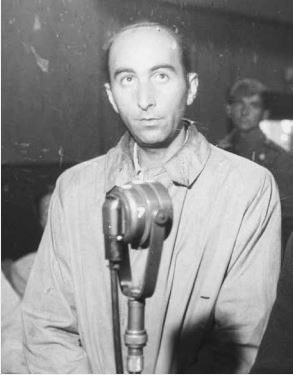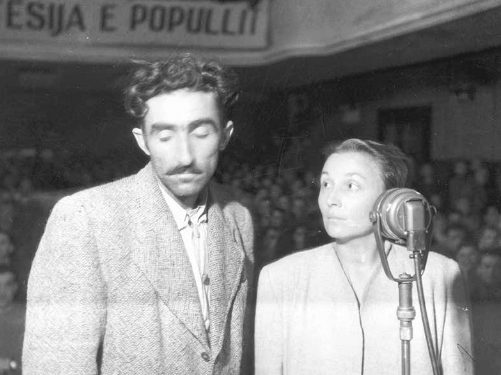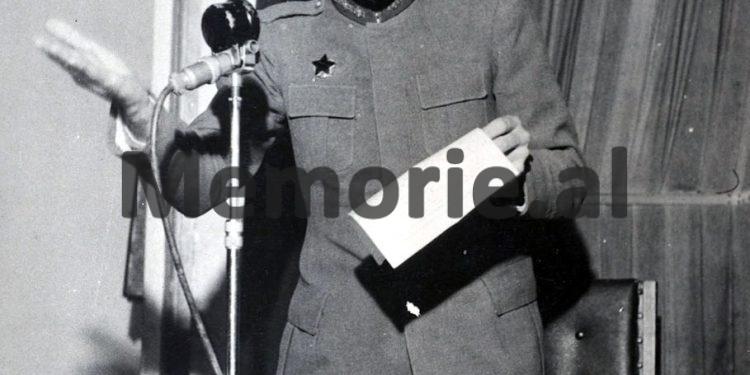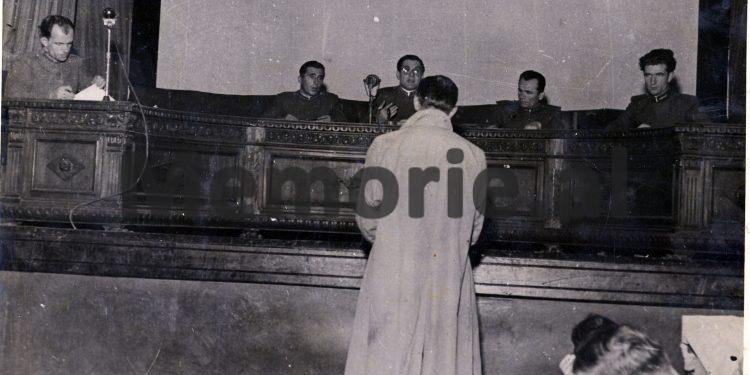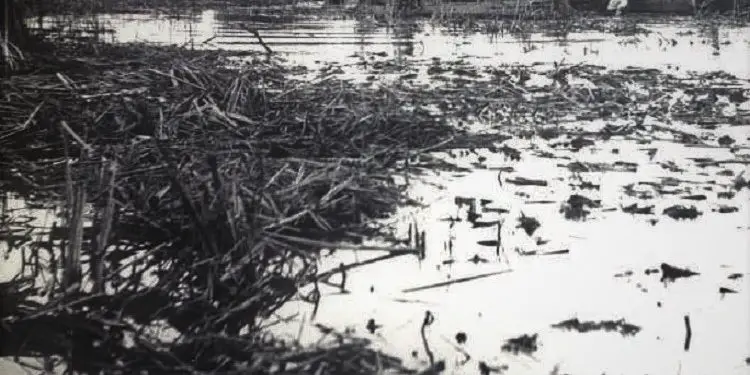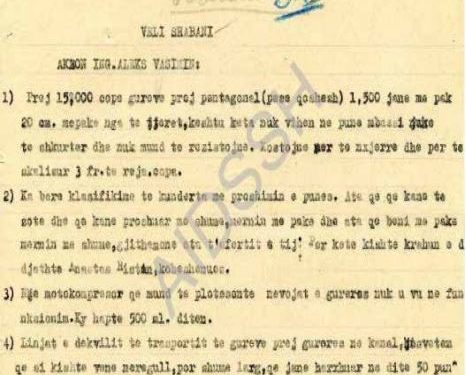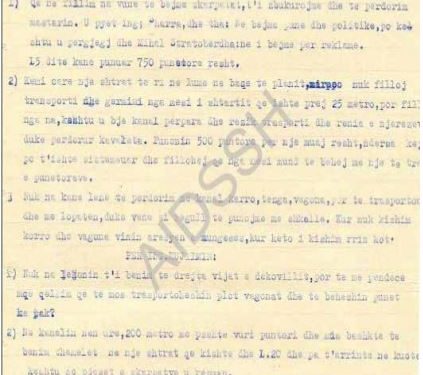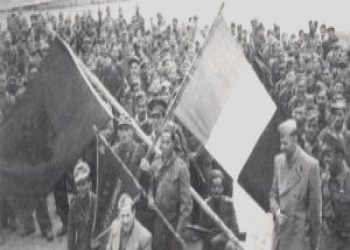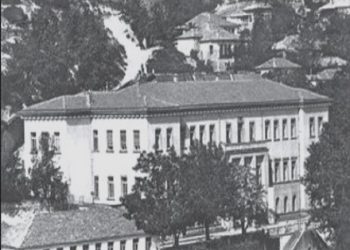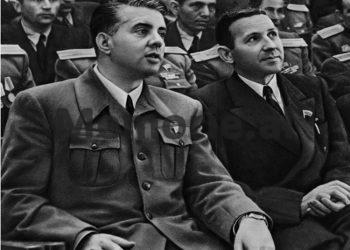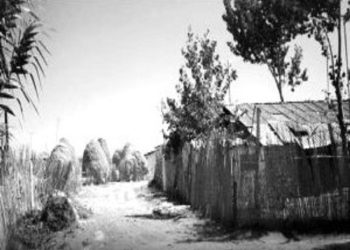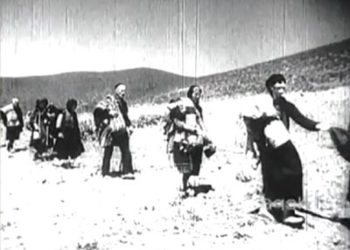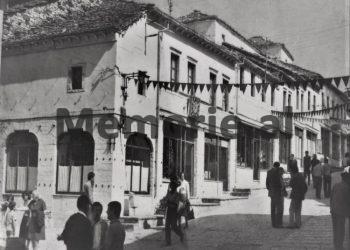By Dr. Mirela Sinani
The first part
– What was the so-called “sabotage organization” in the drying up of the Maliqi swamp?
Memorie.al/ Who were the persons who were accused as members of it? What cultural and professional background did they have? Was there really such an organization or was it a scenario that served the regime of the time to achieve certain goals? These are some of the questions with which, today, anyone who seeks even a little bit of the truth of this event, turns his eyes to the past and tries to find answers. Complete answers are often difficult to find in the documents, as the documents are incomplete or even forged. They can be formulated only after a full knowledge of all documented and carefully analyzed facts.
The so-called “technical-sabotage organization”, according to the accusation that was built by the state of that time, had the following people in its composition:
Abdyl Sharra, 35 years old, born in Vlora in 1911, living in Durrës, engineer by profession, married, with two children.
- He completed the technical school of “Robert College” in Istanbul and the Faculty of Civil Engineering in Rome.
- After the liberation, his father was arrested for some time, while his brother was sentenced by the “people’s court” as a “war criminal”.
- He was appointed to the position of chief engineer in the company for draining the Maliqi swamp.
- On October 1, 1946, he was arrested.
Accusation: “enemy of the people, as the main instigator of large-scale sabotage for large enterprises carried out by the people’s power”.
Punishment: Hanging on a rope
Kujtim Beqiri, 30 years old, from the village of Velçë in Vlora.
- Son of a patriotic family. His father had been an active participant in the raising of the flag in 1912 in Vlora, as well as in the War of Vlora in 1920.
Abdyl Sharra, by order of the Ministry of World Affairs, was charged with directing the works on the bridges of Kruja district;
- In February 1945, he worked on the construction of two large bridges: Mifoli bridge and Penkova bridge;
- He worked in Durrës, for the repair of the wooden bridge on the pier;
- In April 1946, he was appointed to direct the works in the draining of the Maliqi swamp.
- In July 1946, he was transferred to the State Construction Company, Tirana and was assigned to direct the works on the channel of the Hasan Bey Bridge in Berat.
- He worked until October 1, 1946, when he was arrested.
- In 1932, he began his studies at the Technical School, in the electrical department.
- In 1940, he completed his studies with a Gold Medal, in civil engineering, in the road-bridge profile, at the University of Vienna.
- In July 1946, as an engineer, he was charged with the task of director of works for the drying of the Maliqi marsh.
Punishment: Hanging on a rope
Vasil Mano, engineer at the company for draining the Maliqi swamp.
Punishment: by firing squad
Zyrika Mano, wife of engineer Vasil Mano.
- They were accused together of connections and occasional contacts with UNRRA agents and with the member of the American Civilian Mission in Albania, Harry Fultz.
- Although she was pregnant, Zyrika was shot as an enemy of the people.
Punishment: by firing squad.
Pandeli Zografi, surveyor in charge of the company for draining the Maliqi marsh.
Sentence: life imprisonment Mario Guarnieri, Italian citizen.
- On duty as a surveyor in the Maliqi swamp.
Punishment: life imprisonment. Eugenio Scaturo, Italian citizen.
- Accountant in the company for draining the Maliqi swamp.
Punishment: by firing squad.
Mihal Stratobërdha, surveyor at the company for draining the Maliqi swamp.
Sentence: 2 years imprisonment and compulsory labor.
Jani Vasili, 16 years old, worker at the enterprise for drying the Maliqi swamp.
Punishment: 1 year suspended imprisonment, to maintain good moral and political behavior.
For those sentenced to imprisonment, it was ordered:
Confiscation of their personal property;
- Loss of civil and political rights.
- The execution of the death sentence was decided to take place in Maliq.
The second group of “saboteurs” of the draining of the Maliqi swamp
On October 29, 1946, the State Security authorities arrested the engineer Aleks Vasili, the geometer Mirush Përmeti, the Austrian Hans Vala, the driver Lambi Napuçe and the Italian doctor Golfredo Pascual Rizo. The accusation was similar, as for the first group. They were being judged as “enemies of the people, saboteurs of the government” and members of Maliq’s group of engineers and technicians.
- Alex Vasili, engineer
- Mirush Përmeti, geometer
- Hans Vala, Austrian geometer
- Lambi Napuçe, driver
- Golfredo Pascual Rizo, Italian doctor
A communist government was installed in Albania after the Second World War. As such, in the first moments of taking power, she undertook many anti-national political actions in the service of the devouring policies of Titista Yugoslavia. Among these actions was the organization of a series of court proceedings against many Western-educated individuals accused of hostile activities.
Surprisingly, the court proceedings began on November 8, 1946, precisely on the day of the fifth anniversary of the establishment of the Communist Party of Albania, which is already known and documented, that it was created at the initiative and in the service of the Yugoslav Communist Party.
The connection between the events was complete: the NPSH crushed the “enemy of the class” with an iron fist. Behind the hand of the NPSH, there was also the protracted fist of the Yugoslav Communist Party, which was unleashed on intellectuals, skilled professionals, educated in the West and on people with virtues and patriotism.
The trials were conducted in a very quick time. They finished in 10 days (?!). This fact is enough to cast doubt on everything that happened in those court proceedings. During those 10 days, the “discovery” of the group of “saboteurs” of the Maliqi swamp was greatly trumpeted.
Hour after hour, announcements from the court against the “hostile” group were made, keeping public opinion around the country under pressure from the media and in anxiety. The numbing of any resistance and any opposition to what was happening, accompanied by the igniting of popular hatred, served the government, to present its action as if it enjoyed the support of the entire people.
In order for the event to have the greatest impact on the people, either through organized deception or through intimidation, the trial against the engineers and other employees labeled as “saboteurs” took place in the open, in the “Nacional” cinema, which time then it would take the name “Kinema 17 Nëntori”, with a pre-prepared script down to the smallest details.
The process was broadcast publicly with loudspeakers and crowds of people listened to how the “enemies” of the people were punished. This whole situation happened, in front of large masses of people who, in the vast majority, were completely illiterate; let’s not talk about the total lack of knowledge about the principles, norms, rules of a judicial process.
All these aspects proved that the process was a pre-prepared farce and, at the same time, a violent communist propaganda tool that could threaten anyone at any moment. The court announced the death penalty for the accused engineers. Not only was the so-called trial conducted in record time, and in violation of all the rules of a judicial process, but the verdict was announced immediately.
Unfortunately, also, immediately, the execution of the decision was carried out. The day after the announcement of the decision, that is, on November 19, 1946, without giving any opportunity for any kind of appeal of the case, all the accused sentenced to death were executed in Maliq.
This clearly staged trial and the execution of the group of engineers and employees of the company for draining the Maliq swamp was only the starting point of a new wave of arrests, for the mass cleansing of all those who had studied in foreign schools western.
80 former students of Harry Fultz Technical School were immediately arrested. This event also influenced the further deterioration or disconnection of relations with the USA.
With these harsh blows against the layers associated with the Western world and the ideal of Western democracy, the Slavic-communist regime, installed by the Yugoslav Communist Party in Albania, was implementing all the orientations for the proletarianization of the Albanian nation, through the class war, striking the economically rich class and strata, or rich from the point of view of education, culture and administrative skills of the state or economy.
People educated in the American school were especially hit, undermining any possibility of intellectual and wider cooperation with the USA, which was the most powerful country after World War II, with an extraordinary influence on international relations.
By striking all the professional people educated in Western universities, the people capable and qualified to replace the economy destroyed by the war, the people oriented towards Western democratic culture who constituted the layer from which the national elites could be formed, disappeared.
Not only that: People educated in the American school were especially hit, undermining any possibility of intellectual and wider cooperation with the USA, which was the most powerful country after World War II, with a tremendous influence on international relations.
With these actions, the government in power expressed its political orientation towards the strengthening of relations with Yugoslavia, following the complete submission to the Yugoslav Communist Party. Even 71 years after its occurrence, this event still weighs heavily on our national consciousness.
The punishment of the so-called “group of saboteurs of the Maliqi swamp”, was an example of how the power, disguised behind the term “popular”, did not hesitate to throw its own faults and responsibilities for ignorance in the administration of the state and the economy on them people who, with a patriotic spirit, had undertaken to carry out important works even in extremely difficult material and technical conditions.
The purpose of this trial was, in the first place, the continuation of the policy of annihilation of intellectuals educated in Western schools, whose educational and intellectual level was above the educational and cultural level of the heads of the government and the NPSH itself. For this reason they were considered a potential danger to the regime of the time: Only educated people could understand what was hidden behind speeches with patriotic words.
A large part of the people was young people without school, also because of the Second World War. Many of them, with the ideal of liberating the homeland from foreign invaders, had fallen into the trap of the Communist Party and the communist ideology, fundamentally deeply anti-national, especially since this ideology came to Albania, through the long-standing enemy of the Albanian nation, Yugoslav neighbors.
But it was exactly these uneducated young people, who, after coming out with guns to the mountains, for the liberation of the homeland, became obedient tools and fanatical supporters of the anti-national actions of the pro-Yugoslav government of Tirana. Meanwhile, the ordeal of persecution and destruction of the personality and life of intellectuals – the brains and source energy of a nation’s progress – had unfolded.
Secondly, following the submission to the PKJ, the government of Tirana propagated friendship with the Yugoslav peoples and union with them, therefore it was ordered to sever and finally break relations with the Western world, especially with the USA, – the most ally great of the Albanians, the defender of the independence of the Albanian state and of democracy in Albania and to quickly orient the entire Albanian economy, but also the attention of the people, towards Tito’s Yugoslavia and friendship with its peoples.
Thirdly, the government had set the deadline for the completion of the swamp draining works on October 1, 1946, without taking into account the problems presented by a reclamation enterprise of such dimensions, without taking into account the lack of the most elementary work tools, or the lack of of people with knowledge in this field. The government was only interested in propaganda about the successes achieved.
The design of the drying and the organization of the work remained the direct responsibility of those few engineers and geometers who had studied in Western schools, who, characterized by a rare patriotic spirit, to see the homeland as soon as possible recovered and on the way to progress, they did everything possible to carry out this work in the best way.
The concrete implementation of the projects was carried out by exploiting the political prisoners, who had to work as slaves in their homeland, in the middle of the swamp full of leeches, immersed in water up to the middle or often up to the mouth, in warm or frosty weather, without any protective conditions at work, with very little food and without any medical help, to drain a thousand-year-old swamp, even in record time and with the most primitive tools!
The non-completion of the works for draining the marsh in the deadline set by the government, a deadline set without any analysis of the facility and working conditions, was used as a pretext to invent a hostile group and launch a wave of strikes against all Albanians with Western culture and aspirations for Western-style democracy.
For these reasons, the charge of sabotaging a major reclamation work was mounted, through which a major source of malaria disease would disappear and thousands of hectares of land would be made available to the peasantry. Constructing the accusation in this way, the people were told that the causes of malaria, floods or lack of bread land were the people who had studied in the west, sold to foreigners.
Power began to process the collective consciousness by shaping, little by little, the danger from the democratic West and the danger from the educated people there. In the face of this danger, the people, with full conviction, had to tighten their ranks behind the communist party and the government that claimed to have emerged from the people.
Fourthly, the judicial process organized against the so-called saboteur group of draining the Maliq swamp was also used as an extremely efficient tool of political blackmail: on the one hand, fear and terror were spread among the people; on the other hand, anyone who belonged to a certain stratum was blackmailed rich or educated in the West with the ideals of Western democracy. Memorie.al
The next issue follows




